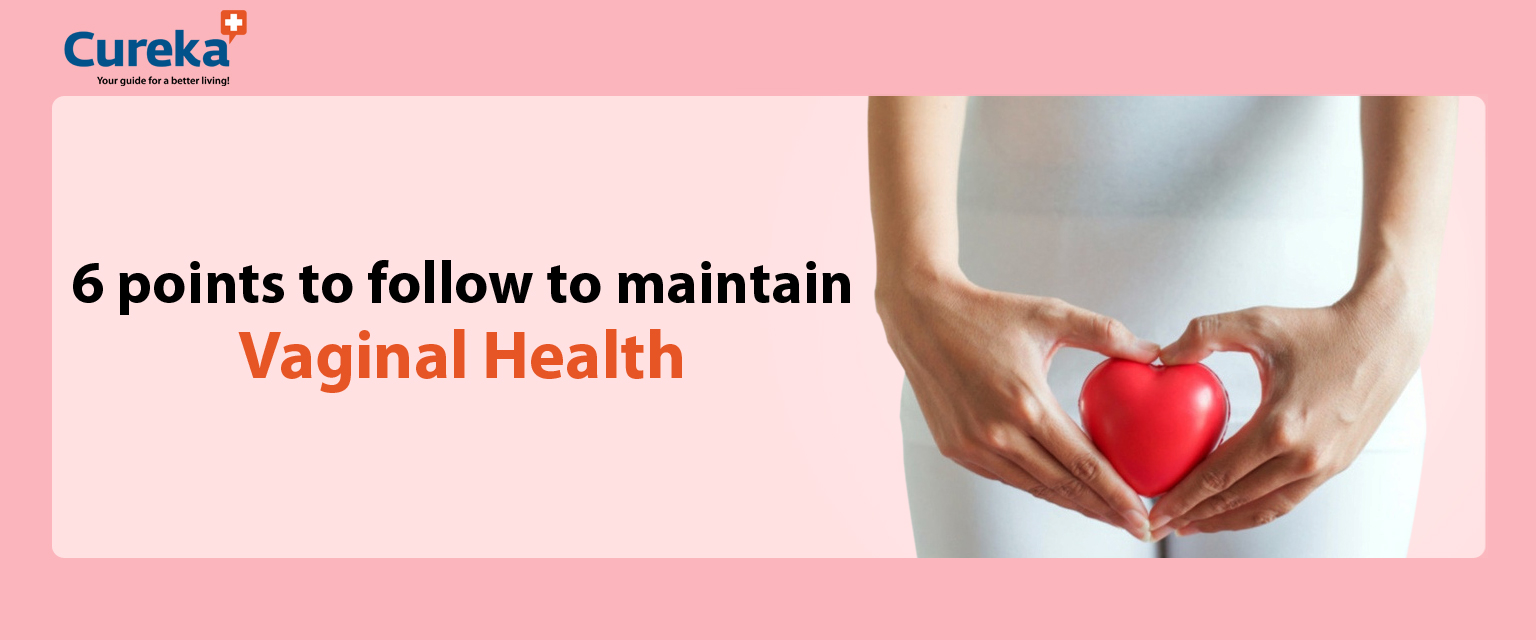6 Points to Follow to Maintain Vaginal Health
All women need to worry about their vaginal health; however, what establishes a healthy vagina? Well, it depends on the woman’s age as the vagina usually has an acidic pH, having richer quantities of beneficial bacteria, which assist in keeping away infections and are lubricated naturally.
However, if women experience any discomfort like vaginal odor or discharge color changes , vulvar discomfort, pelvic discomfort, burning, or itching— you should evaluate all the changes.
Follow these tips to keep the vagina healthy:
- Care for Vaginal pH Balance Without Any Douching
Usually, vaginal pH is around 3.8-4.5; douching could affect the vagina’s pH levels, decreasing acidity and disrupting the healthy vagina biome, the bacterial nature of the vagina, and setting a stage for bacterial infections.
If your vagina has an unpleasant or strong smell, visit your doctor immediately; a douche would only cover the odor without curing its causing problem. Don’t use any cleansers or harsh soaps on your vulva or within the vagina because these also may affect the healthy pH balance. Use pH balanced intimate wash.
- Follow Healthy Diet for Good Vaginal Health
Following a nutritious and well-balanced diet and drinking, lots of fluids are keys to vaginal health. Some foods are very effective in treating vaginal problems.
Yogurt can help stop yeast infections and aid in the treatment. Yogurt has probiotics; therefore, if any woman is likely to have yeast infections, consuming a probiotic enriched with Lactobacilli daily can be very helpful.
- Follow Sex Safety to Keep Unsafe Germs Away
Using condoms for males or females — during sex assists in shielding against STIs (Sexually Transmitted Infections) like HIV, syphilis, gonorrhea, genital herpes, chlamydia, and genital warts. Some of them, like genital herpes and HIV, are almost not curable.
You need to change condoms while switching from anal or oral sex and vaginal sex to stop transmission of unsafe bacteria into your vagina. You should also avoid sex toy sharing with your partner as you could spread STIs with this— particularly HPV.
- Consult Gynecologist or Physician for Precautionary Care
Having routine gynecological examination is vital in maintaining vaginal health. According to The American Congress of Obstetricians and Gynecologists, women should have their primary gynecologic screening at the age 21.
Women should undertake Pap smears at the age of 21 to screen for changes in the vaginal cells, which might show the occurrence of cancer. Gynecologists and physicians, are well-trained to identify disorders and diseases that can damage the reproductive system or vagina on the whole.
- Use Sufficient Lubricant but Avoid Petroleum Jelly
Lubrication is a very vital part of the contact. Without that, the vagina or labia skin can be irritated and skin could have aberrations. Though vaginal lubrication generally occurs naturally in female arousal, a few women do not make sufficient natural lubricants. In that case, they need to use an artificial lubricant to reduce friction and increase pleasure.
- Always Take Care of Hygiene
After any bowel movement, clean from the front to back, avoid bacterial infection of the vagina and lower the risks of bladder infections. Change tampons and sanitary pads regularly during the period. It’s good to use panty liners and absorb usual vaginal discharge providing you to frequently change them; however, the women who wear them constantly might experience vulvar irritation.
Conclusion
Vaginal health is a vital part of women’s health. Vaginal complications can affect desire for sex, fertility, and ability of reaching orgasm. Current vaginal health issues may also cause relationship problems or stress and disturb self-confidence.














